Nestled in the heart of the Garhwal Himalayas, the Har Ki Dun trek is a remarkable journey that takes trekkers through lush green valleys, ancient villages, and panoramic views of majestic snow-capped peaks. Known as the "Valley of Gods," this trek offers an enchanting blend of natural beauty, cultural richness, and adventurous thrills. With its moderate difficulty level, Har Ki Dun is suitable for both seasoned trekkers and beginners seeking to explore the pristine wilderness of Uttarakhand.
Introduction to Har Ki Dun Trek
The Har Ki Dun trek, translating to "Valley of Gods," is one of the most scenic treks in Uttarakhand. It is located in the Govind Pashu Vihar National Park and Wildlife Sanctuary, in the Uttarkashi district. The trek spans approximately 47 kilometers and typically takes about 6-7 days to complete. The journey offers a diverse landscape, including verdant meadows, dense forests, glacial rivers, and alpine flowers.
History and Mythology
Har Ki Dun is steeped in mythological significance. According to Hindu mythology, this valley is the same route that the Pandavas, the heroes of the Mahabharata, took on their way to heaven. The name "Har Ki Dun" itself is derived from "Har," which refers to Lord Shiva, and "Dun," which means valley. This sacred association adds a mystical charm to the trek, attracting not only nature lovers but also those seeking spiritual solace.
Trekking Route and Itinerary
Embark on an unforgettable trek through the heart of the Garhwal Himalayas, culminating in the breathtaking Har Ki Dun valley. This 7-day expedition will take you through lush forests, charming villages, and snow-capped peaks, offering a perfect blend of natural beauty and cultural immersion.
? Day 1: Gateway to the Himalayas
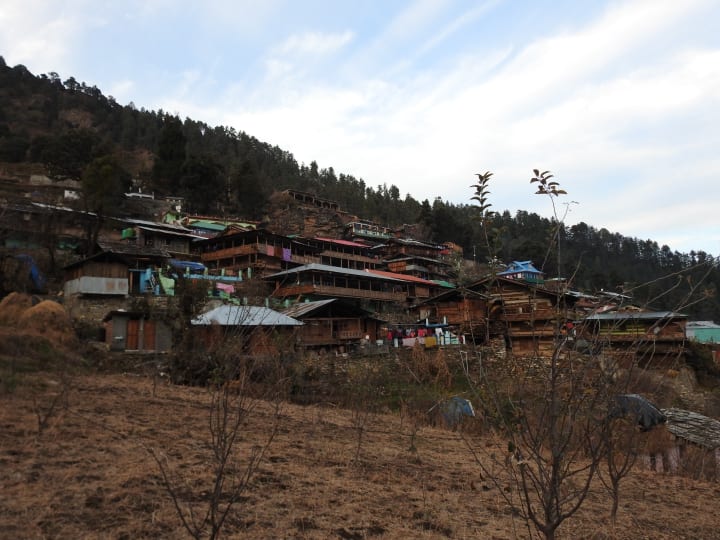
Dehradun to Sankri: The Road Less Traveled
- Distance: 197 km
- Duration: 9-10 hours
- Elevation: 640m to 1950m
? Journey Highlights:
- Departure from ISBT Dehradun (7:00 AM sharp)
- Scenic drive through Mussoorie hills
- Glimpses of the majestic Kempty Falls
- Yamuna River as your constant companion
- Final stretch through the exotic Govind National Park
? Evening in Sankri:
- Arrive by 5:00 PM
- Witness the sunset over Mt. Swargarohini
- Overnight in cozy guesthouses
? Pro Tip: Keep your camera handy for impromptu photo opportunities along the winding mountain roads!
? Day 2: Into the Wilderness
Sankri to Pauni Garaat: Where the Trek Begins
- Morning Drive: Sankri to Taluka (12 km, 1 hour)
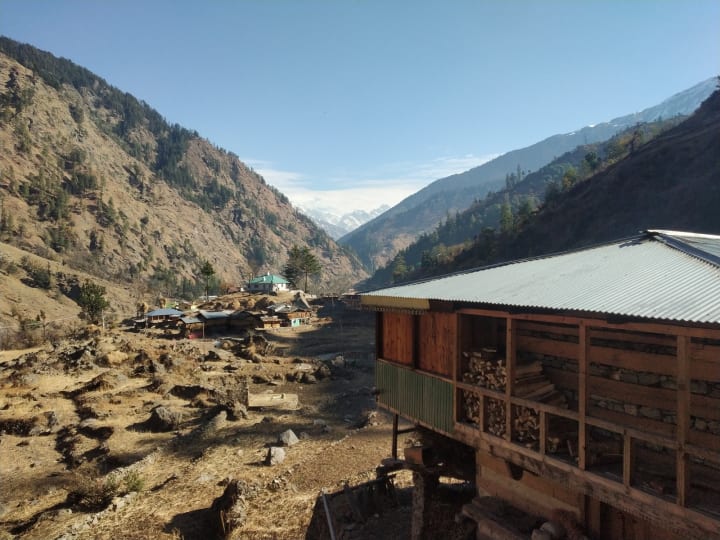
- Trek: Taluka to Pauni Garaat (9 km, 5-6 hours)
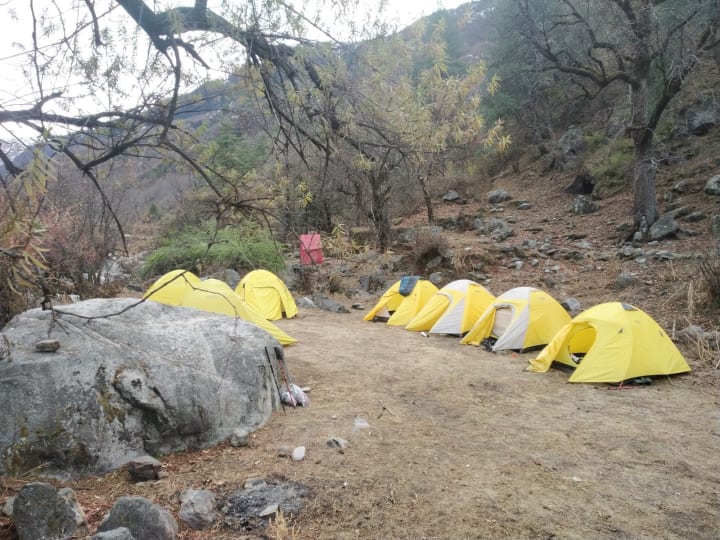
- Elevation Gain: 1950m to 2500m
? Trail Treasures:
- Spot Himalayan birds: Raven, Red-Billed Blue Magpie, Bulbul
- Walk alongside the melodious Supin River
- Cross picturesque wooden bridges
- Pass through fragrant Walnut, Pine, and Cedar forests
?️ Camping at Pauni Garaat:
- Set up camp in a vast clearing
- Explore the surrounding area
- Enjoy a hot dinner under the stars
? Pro Tip: Fill your water bottles at the crystal-clear streams along the way!
? Day 3: Ascent to Kalkattiyadhaar
Pauni Garaat to Kalkattiyadhaar: A Day of Vistas
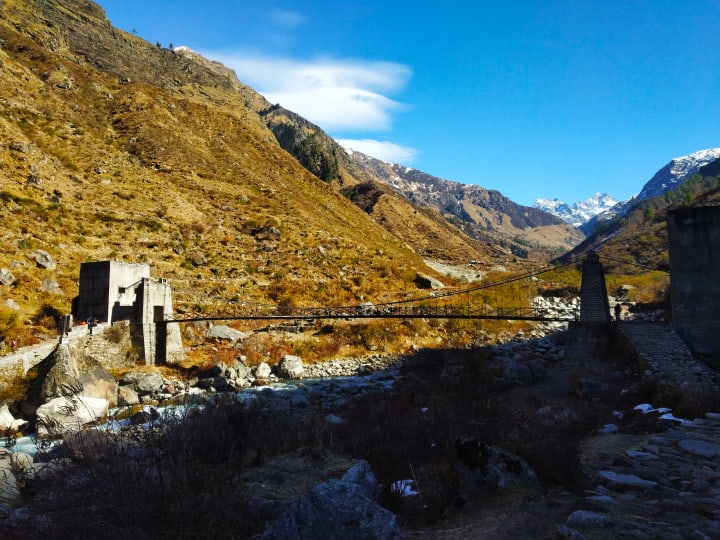
- Distance: 8 km
- Duration: 3-4 hours
- Elevation Gain: 2500m to 3024m
? Journey Highlights:
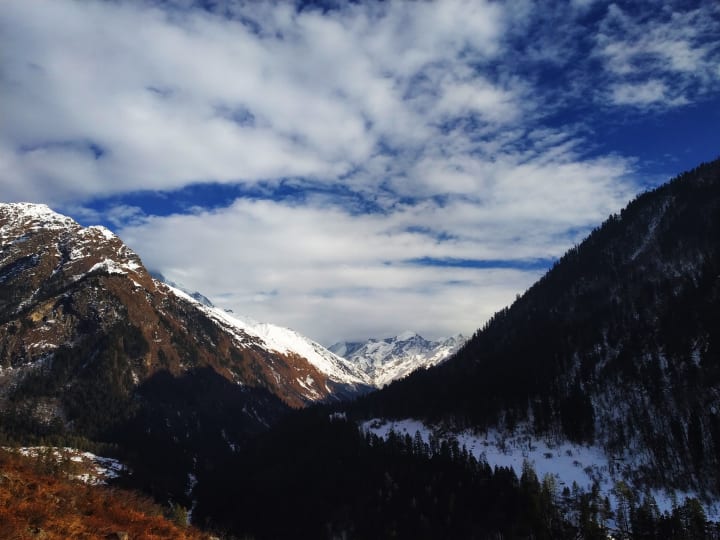
- Morning yoga session to energize your body
- Trek through towering forests to Seema village
- Cross the iconic Seema Bridge over Supin River
- Climb to Osla, passing Amaranth fields
- Panoramic views of Banderpoonch and Swargarohini ranges
?️ Kalkattiyadhaar Camp:
- Reach by 1:00 PM
- Acclimatization time
- Spot peaks: Buyal Devsu, Mt. Black Peak, Kedarkantha
? Pro Tip: Look out for the striking red Amaranth fields during monsoon season!
? Day 4: Summit Day - Har Ki Dun
Kalkattiyadhaar to Har Ki Dun and Back: The Crown Jewel
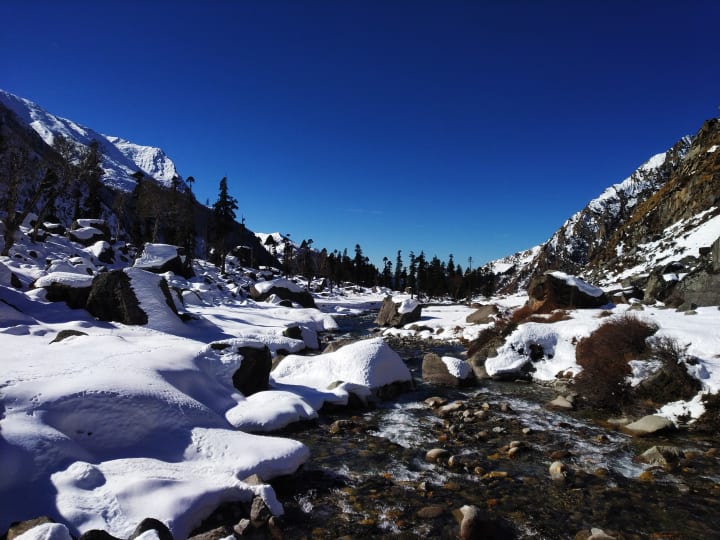
- Total Distance: 14 km (round trip)
- Duration: 7-8 hours
- Max Elevation: 3566m
⛰️ Summit Push:
- Early start at 6:00 AM
- Trek through snow-covered landscapes (in winter)
- Navigate a challenging 45-degree incline
- Final ascent through dense forest to the summit
?️ Har Ki Dun Summit Experience:
- Breathtaking views of Swaragrohini-1, Hata Peak, Black Peak
- Explore alpine meadows, glacier moraines, and swift streams
- Picnic lunch with a view
? Return Journey:
- Descend back to Kalkattiyadhaar camp
- Evening of rest and reflection
? Pro Tip: In winter, be prepared with microspikes and gaiters for snowy terrain!
? Day 5: Cultural Immersion
Kalkattiyadhaar to Pauni Garaat: Village Exploration
- Distance: 7 km
- Duration: 3-4 hours
- Elevation Loss: 3024m to 2500m
? Morning Magic:
- Witness a spectacular sunrise from Kalkattiyadhaar
- Enjoy a hearty breakfast with mountain views
?♂️ Trekking Highlights:
- Cross Har Ki Dun Bridge
- Gentle descent along the river
- Visit the charming village of Osla
? Osla Village Experience:
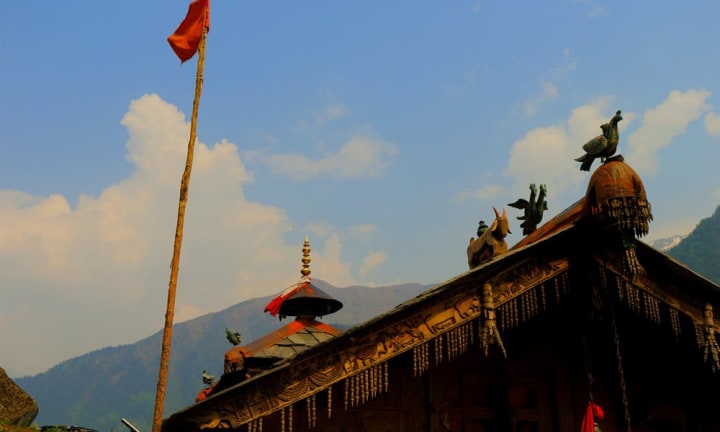
- Explore traditional double-storied wooden houses
- Visit the intricately carved Someshwar temple
- Interact with friendly locals
?️ Evening at Pauni Garaat:
- Relax and reminisce about the journey so far
- Prepare for the final leg of the trek
? Pro Tip: Bring small gifts or school supplies to share with the village children!
? Day 6: The Descent
Pauni Garaat to Sankri: Back to Civilization
Trek: Pauni Garaat to Taluka (9 km, 5-6 hours)
Drive: Taluka to Sankri (12 km, 1 hour)
? Nature's Farewell:
- Trek through Chir Pine forests and fern groves
- Last views of the majestic Supin River
- Watch out for the harmless but stinging "bichu ghaas" plant
? Return to Sankri:
- Arrive in time for a relaxing evening
- Share stories and experiences with fellow trekkers
- Last night in the mountains
? Pro Tip: Use trekking poles to ease the pressure on your knees during the descent!
? Day 7: Homeward Bound
Sankri to Dehradun: A Journey of Reflection
- Distance: 197 km
- Duration: 9-10 hours
- Elevation Change: 1950m to 640m
? Final Mountain Morning:
- Early breakfast with last mountain views
- Departure from Sankri by 7:00 AM
? Return Journey:
- Retrace the scenic route through Govind National Park
- Lunch stop at a picturesque location
- Arrival in Dehradun by 7:00-8:00 PM
? Journey's End:
- Bid farewell to your trekking companions
- Exchange contact information for future adventures
? Pro Tip: Plan your onward journey from Dehradun for the next day to account for any delays.
? Photo Opportunities:
- Sunset over Mt. Swargarohini (Day 1)
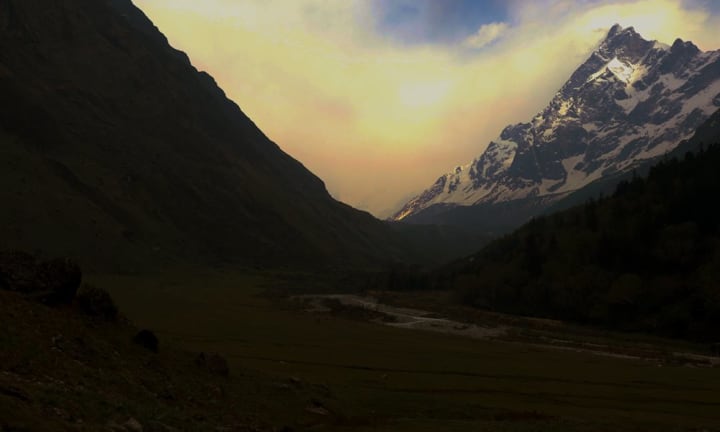
- Seema Bridge panorama (Day 3)
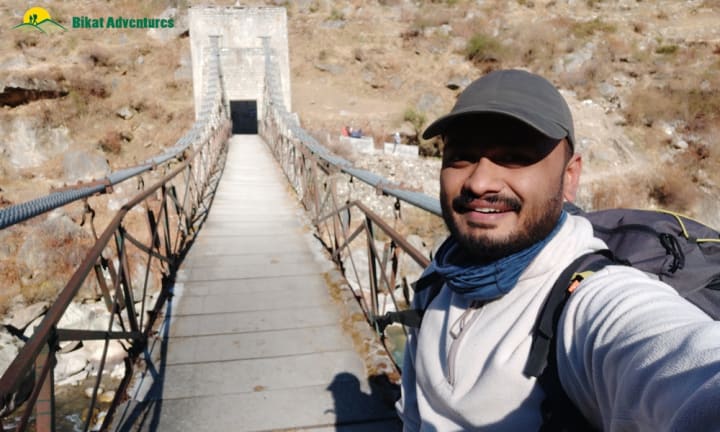
- Har Ki Dun valley views (Day 4)
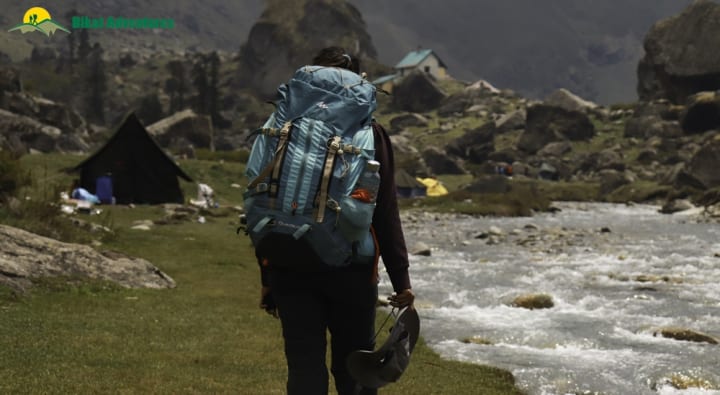
- Traditional architecture in Osla village (Day 5)
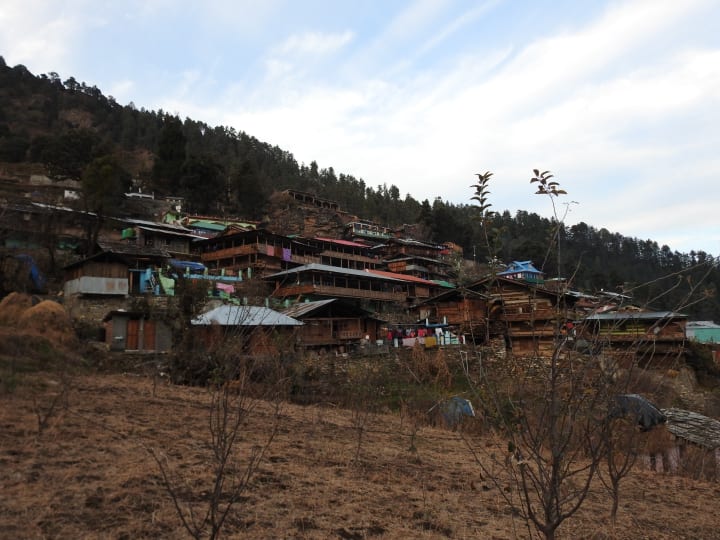
- Sunrise from Kalkattiyadhaar (Day 5)
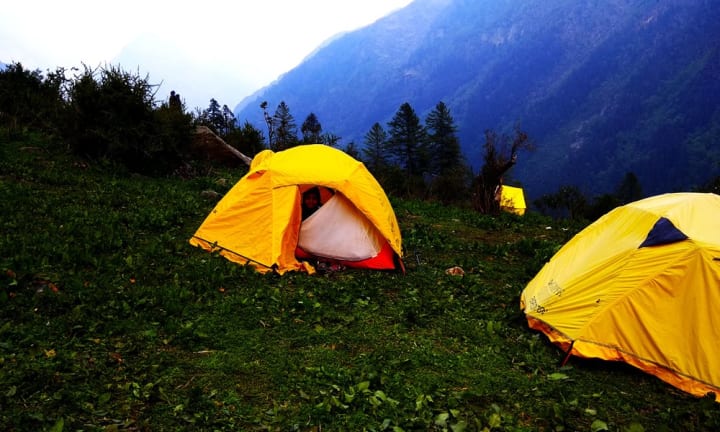
Embark on this incredible journey through the Garhwal Himalayas, where every step brings new wonders and lasting memories. The Har Ki Dun trek offers a perfect blend of challenge and beauty, cultural insights and natural splendor. Get ready for an adventure that will stay with you long after you've returned to the plains!
Flora and Fauna
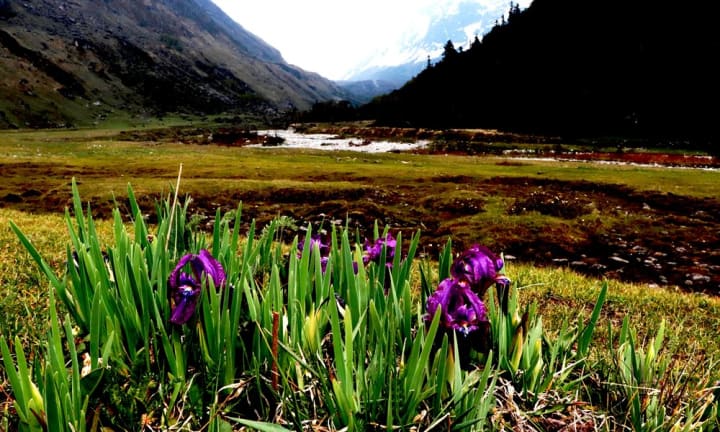
The Har Ki Dun trek is a paradise for nature enthusiasts. The diverse ecosystem of the Govind Pashu Vihar National Park is home to a variety of flora and fauna. The forests are dominated by conifers, including pine, deodar, and oak trees. During spring and summer, the meadows are adorned with vibrant alpine flowers like blue poppies and Brahma Kamal.
Wildlife enthusiasts may spot Himalayan wildlife such as black bears, langurs, wild boars, and a variety of birds, including the monal pheasant, which is the state bird of Uttarakhand. The pristine environment and rich biodiversity make the trek a delight for naturalists and photographers.
Cultural Experience
One of the unique aspects of the Har Ki Dun trek is the opportunity to immerse oneself in the local culture. The villages of Osla and Sankri are inhabited by the people of the Tons Valley, who have preserved their traditional way of life for centuries. The wooden houses with intricately carved facades, the traditional attire, and the local cuisine offer a glimpse into the region's rich cultural heritage.
The Someshwar Mahadev Temple in Osla, dedicated to Lord Shiva, is an architectural marvel and a center of local religious activities. Interacting with the villagers, understanding their customs, and participating in their daily activities provide a deeper connection with the region.
Best Time to Visit
The best time to undertake the Har Ki Dun trek is from April to June and September to November. During these months, the weather is pleasant, and the trails are most accessible. In spring and early summer, the valley is in full bloom with a variety of flowers, while autumn offers clear skies and stunning views of the snow-clad peaks.
Preparation and Tips
Although the Har Ki Dun trek is considered moderate, proper preparation is essential. Here are some tips for a successful trek:
1. Fitness: Regular cardio exercises and strength training will help build stamina and endurance for the trek. This can include activities like running, cycling, and weightlifting. Additionally, practicing with a loaded backpack can simulate the trekking experience.
2. Packing: Carry appropriate trekking gear, including a high-quality backpack with rain cover, sturdy trekking shoes with good grip, warm clothing for cold nights, rain gear for unexpected showers, a comfortable sleeping bag, and a comprehensive first aid kit with necessary medications.
3. Acclimatization: Spend a day at Sankri to acclimatize to the altitude before starting the trek. This can reduce the risk of altitude sickness and improve overall trekking experience.
4. Hydration and Nutrition: Stay hydrated by drinking plenty of water throughout the trek and carry high-energy snacks like nuts, dried fruits, and energy bars to maintain energy levels.
5. Local Support: Hiring a local guide or joining a trekking group can enhance the experience and ensure safety. Local guides are familiar with the terrain, weather conditions, and can share insights about the region's culture and history.
Conclusion
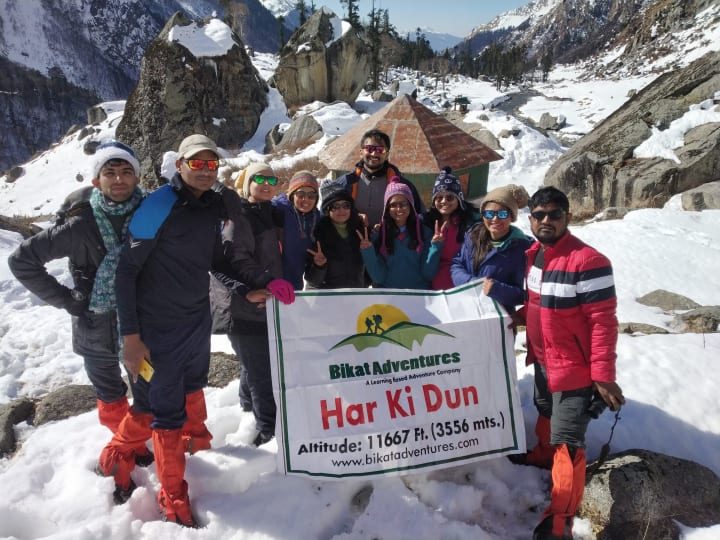
The Har Ki Dun trek is more than just a physical journey; it is a passage into a world where nature's splendor and cultural richness coexist harmoniously. From the mythological significance to the breathtaking landscapes and warm hospitality of the locals, every aspect of this trek leaves an indelible mark on the soul. Whether you are an adventure enthusiast, a nature lover, or someone seeking spiritual tranquility, the Har Ki Dun trek promises an unforgettable experience in the Valley of Gods.
